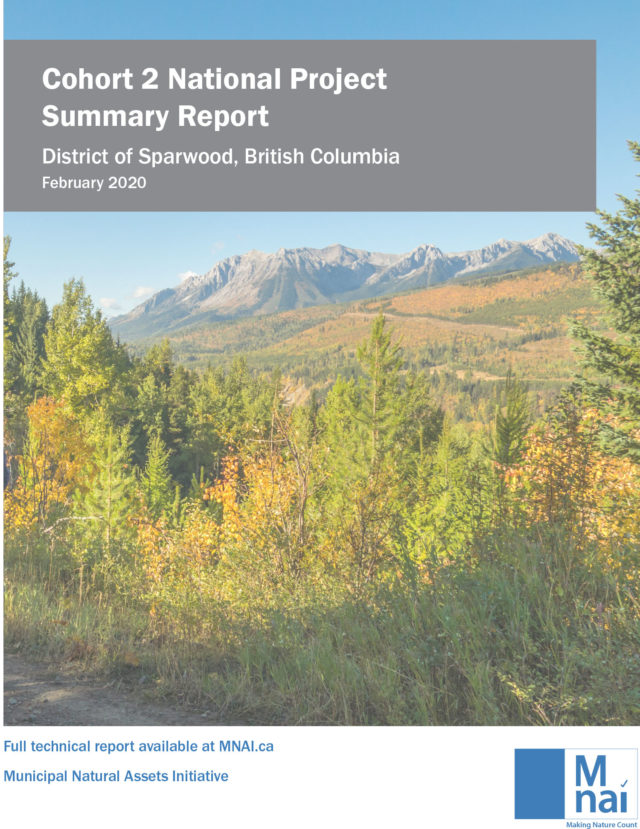Municipal Natural Assets Initiative — Cohort 2 National Project Summary Report: Sparwood, British Columbia
Published by:
David Suzuki Foundation and partners
Authored by:
Michelle Molnar,
Amy Taylor,
Jeff Wilson,
Josh Thiessen,
Cheekwan Ho
Partners:
Smart Prosperity Institute,
Town of Gibsons,
Roy Brooke and Associates
Cities, Climate solutions, Biodiversity, Oceans and fresh water eco-assets, British Columbia, water systems, community and culture, economics, land use, natural capital, Municipal Natural Assets Initiative
The District of Sparwood, B.C., wanted to understand how to improve water quality in the Elk River through better management of natural assets. Specifically, the Sparwood project identified a natural pond at the outlet of a culvert and explored options to manage, rehabilitate and monitor it to control erosion and reduce discharge of sediment and other effluents.
The project measured how much sediment the pond would capture under four different scenarios and analyzed the economic costs of the existing pond, an enhanced pond and an engineered alternative. The economic costs included upfront or capital costs, maintenance costs and life-cycle costs.
Results showed that an enhanced pond — now and with climate change — would capture the most sediment, around 94 per cent. Life-cycle costing ranged from no capital or maintenance costs for the existing pond to $248,000 for an engineered alternative over 25 years. The District of Sparwood can use this information in asset management decisions, both at this specific site and other sites where the approach is replicated.
